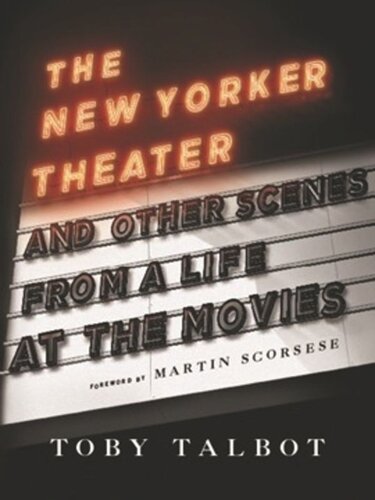

Most ebook files are in PDF format, so you can easily read them using various software such as Foxit Reader or directly on the Google Chrome browser.
Some ebook files are released by publishers in other formats such as .awz, .mobi, .epub, .fb2, etc. You may need to install specific software to read these formats on mobile/PC, such as Calibre.
Please read the tutorial at this link: https://ebookbell.com/faq
We offer FREE conversion to the popular formats you request; however, this may take some time. Therefore, right after payment, please email us, and we will try to provide the service as quickly as possible.
For some exceptional file formats or broken links (if any), please refrain from opening any disputes. Instead, email us first, and we will try to assist within a maximum of 6 hours.
EbookBell Team

4.3
68 reviewsThe nation didn't know it, but 1960 would change American film forever, and the revolution would occur nowhere near a Hollywood set. With the opening of the New Yorker Theater, a cinema located at the heart of Manhattan's Upper West Side, cutting-edge films from around the world were screened for an eager audience, including the city's most influential producers, directors, critics, and writers. Woody Allen, Martin Scorsese, Susan Sontag, Andrew Sarris, and Pauline Kael, among many others, would make the New Yorker their home, trusting in the owners' impeccable taste and incorporating much of what they viewed into their work.
In this irresistible memoir, Toby Talbot, co-owner and proud "matron" of the New Yorker Theater, reveals the story behind Manhattan's wild and wonderful affair with art-house film. With her husband Dan, Talbot showcased a range of eclectic films, introducing French New Wave and New German cinema, along with other groundbreaking genres and styles. As Vietnam protests and the struggle for civil rights raged outside, the Talbots also took the lead in distributing political films, such as Bernard Bertolucci's Before the Revolution, and documentaries, such as Shoah and Point of Order.
Talbot enhances her stories with selections from the New Yorker's essential archives, including program notes by Jack Kerouac, Jules Feiffer, Peter Bogdanovich, Jonas Mekas, Jack Gelber, and Harold Humes. These artifacts testify to the deeply engaged and collaborative spirit behind each showing, and they illuminate the myriadand often entertainingaspects of theater operation. All in all, Talbot's tales capture the highs and lows of a thrilling era in filmmaking.